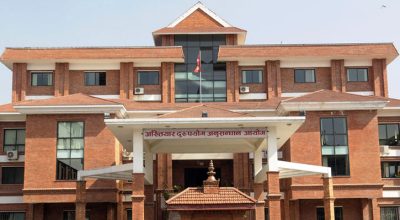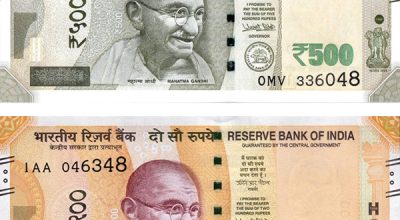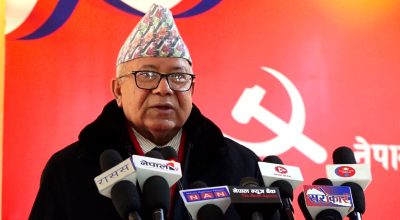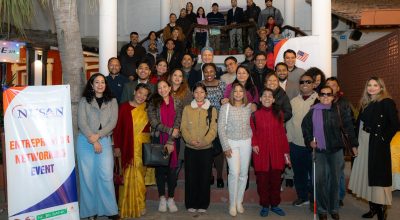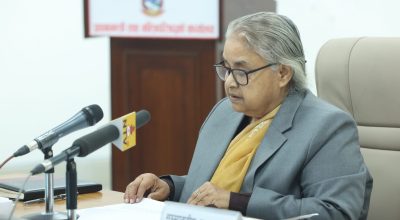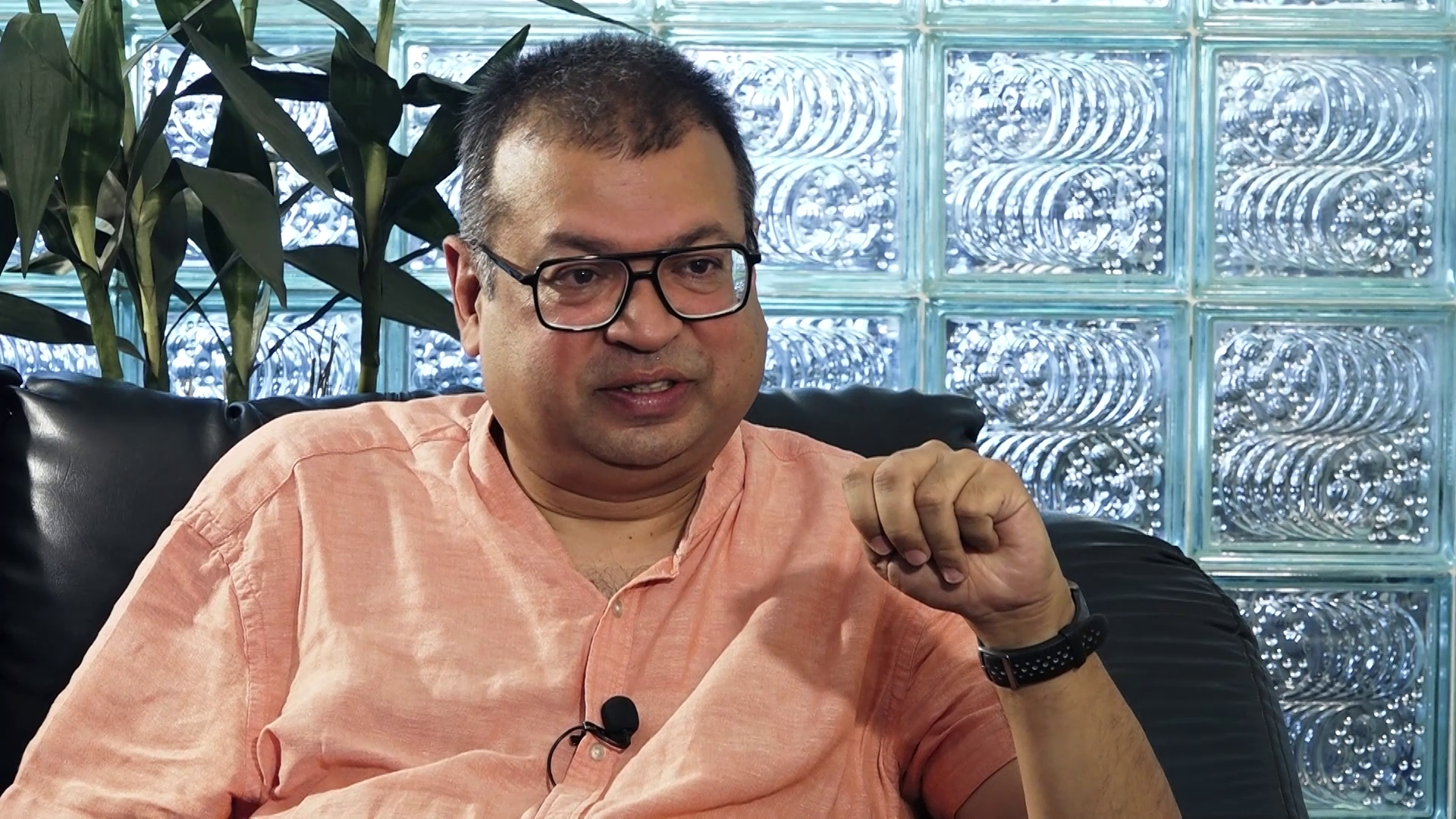
Kathmandu, Aug 17: The Kigali Global Dialogue, a one-of-a-kind platform for developing countries, is praised for encouraging inclusive dialogue. Rwanda’s success may be traced back to visionary leadership, good governance, and an emphasis on human resources, with gender equity and Reconciliation playing essential roles. The importance of evidence-based decision-making, political professionalism, and gender equality is emphasised, as are lessons for Nepal, such as leveraging goodwill, investing in human resources, and communicating transparently. Rwanda’s capacity to retain national pride, optimism, and shared identity among its population is regarded as a critical aspect of the country’s progress.
The Kigali Global Dialogue Forum is a one-of-a-kind forum that brings together representatives from developing countries to discuss major global issues. It is organised by India’s Observer Research Foundation (ORF) and the Rwanda Governance Board. Set against Rwanda’s incredible growth and development, this selected event focuses on inclusive conversation, bringing varied perspectives, and supporting gender equity. The critical findings are the importance of open discussions, regional alliances, and issue-based collaborations among developing nations. Visionary leadership, good governance, gender equity, human resource investment, and effective reconciliation initiatives are credited with Rwanda’s achievements. The lessons for Nepal include embracing gender equality, investing in public education and healthcare, and cultivating a sense of national pride and optimism for a globally appealing growth path. Rwanda’s commitment to evidence-based decision-making, visionary leadership, and public engagement is an example for other countries pursuing long-term growth. Nepal News Agency, a private sector leading news agency of Nepal, talked with High Policy Strategist and Leadership Mentor Dr Sunoor Verma about the Kigali Dialogue Forum and it’s significance. Excerpts:
You were recently invited to speak at the Kigali Global Dialogue; please explain your personal experience and impressions of participating in this unique event in Rwanda.
Dr Sunoor Verma: The Kigali Global Dialogue is a truly unique platform for debate that is convened by two highly credible organisations, the Observer Research Foundation, India and the Rwanda Governance Board, and it brings together a diverse range of voices from developing countries. This dialogue is known for ensuring a significant presence of women speakers, which is not always the case at international events.”
Another thing that makes the Kigali Global Dialogue special is that it’s held in Rwanda, one of Africa’s fastest-growing economies. It’s an inspiring place to be, giving us a glimpse of what’s possible for developing countries.
The topics discussed at the Kigali Global Dialogue are also very bold. They don’t shy away from complex issues; participants can express their views without worrying about pleasing donors or funding sources. This makes for a candid exchange of ideas essential for developing countries.
The Kigali Global Dialogue is an invaluable platform for developing countries to come together, discuss critical issues, and learn from each other’s experiences. I’m grateful for the opportunity to participate in this year’s event, and I look forward to returning.
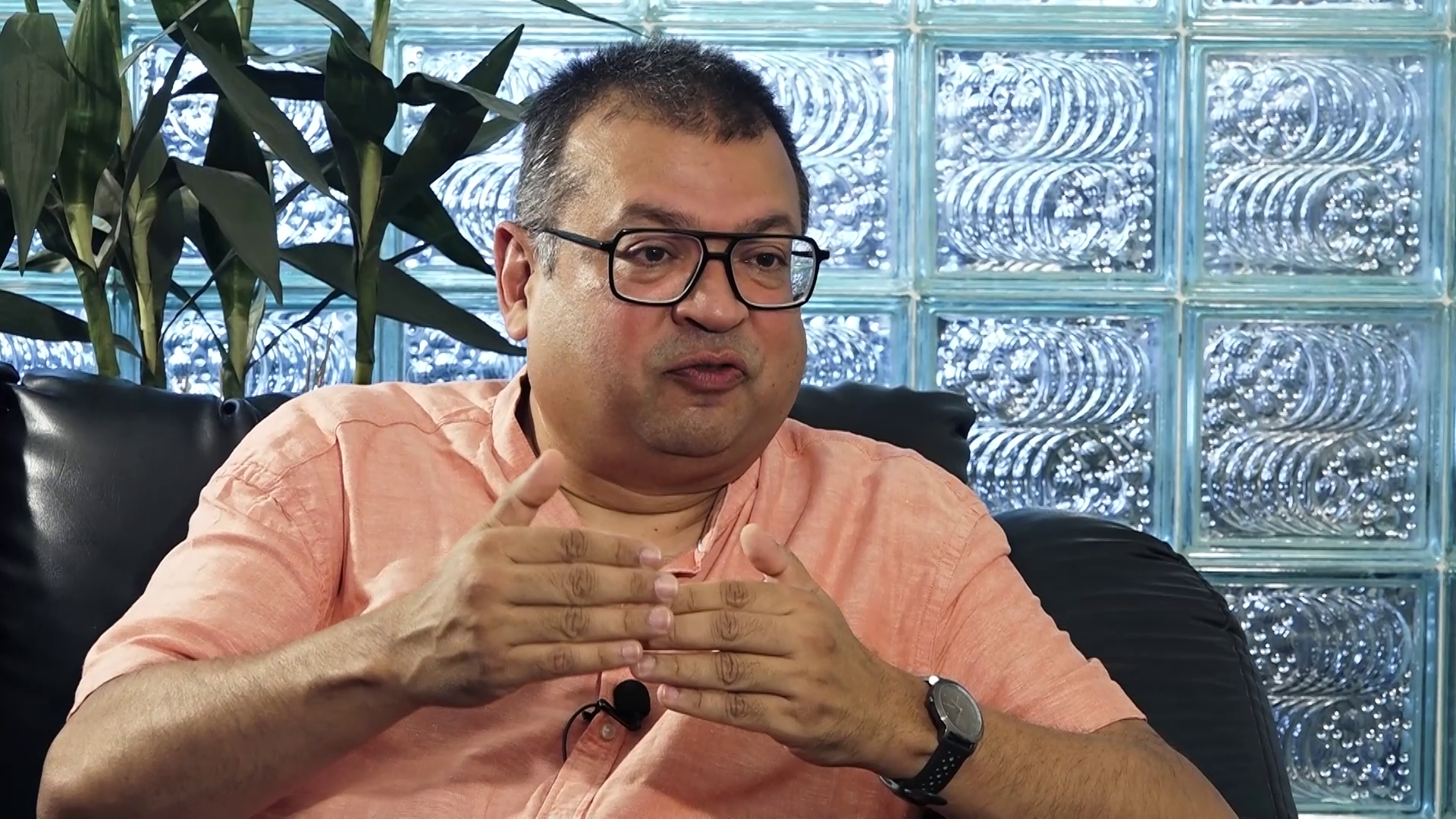
Can you share some insights that you gained from participating in the dialogue?
One of the most significant insights I gained from the dialogue was the continued relevance of dialogue between developing countries. Too often, the conversation about development is dominated by developed countries, who may not always understand the unique challenges and opportunities facing developing countries. The Kigali Global Dialogue was a refreshing change of pace, as it was a platform for developing countries to come together and share their experiences. This was incredibly valuable; we could learn from each other and build relationships. Another insight I gained was the importance of regional alliances and issue-based alliances. In today’s world, it is no longer enough to focus on national development simply. We need to work with our neighbours and countries facing similar challenges. This is the only way to achieve sustainable development. The Kigali Global Dialogue was a wake-up call for many. It is a sobering reminder that developing countries have the power to shape their destiny. We must continue coming together, sharing our experiences, and building alliances. Together, we can create a better future for all as long as there are credible hosts, such as the Observer Research Foundation and the Rwanda Governance Board, whose intentions are trusted.
So the dialogue was held in Rwanda, and its Kigali global dialogue and such dialogues have helped the country garner international attention; so can you elaborate on how these dialogues have effectively promoted Rwanda’s achievements and helped foster global engagement?
The Kigali Global Dialogue is a powerful asset for Rwanda to showcase its achievements to the world without being a pony show. It brings together a wide range of influential people from all over the world who get to see firsthand Rwanda’s progress in recent years. This year’s dialogue, for example, brought together people from over 70 countries. They had the opportunity to learn about Rwanda’s economic growth, its commitment to good governance, and its progress in education and healthcare. They also had the chance to meet with Rwandan policymakers and business leaders and discuss ways to collaborate on future projects.
However, The Kigali Global Dialogue is not just about promoting Rwanda’s achievements. It is also about fostering global engagement. When policymakers and business leaders worldwide come together in Kigali, they can build relationships and share ideas. This can lead to new partnerships and new development opportunities.
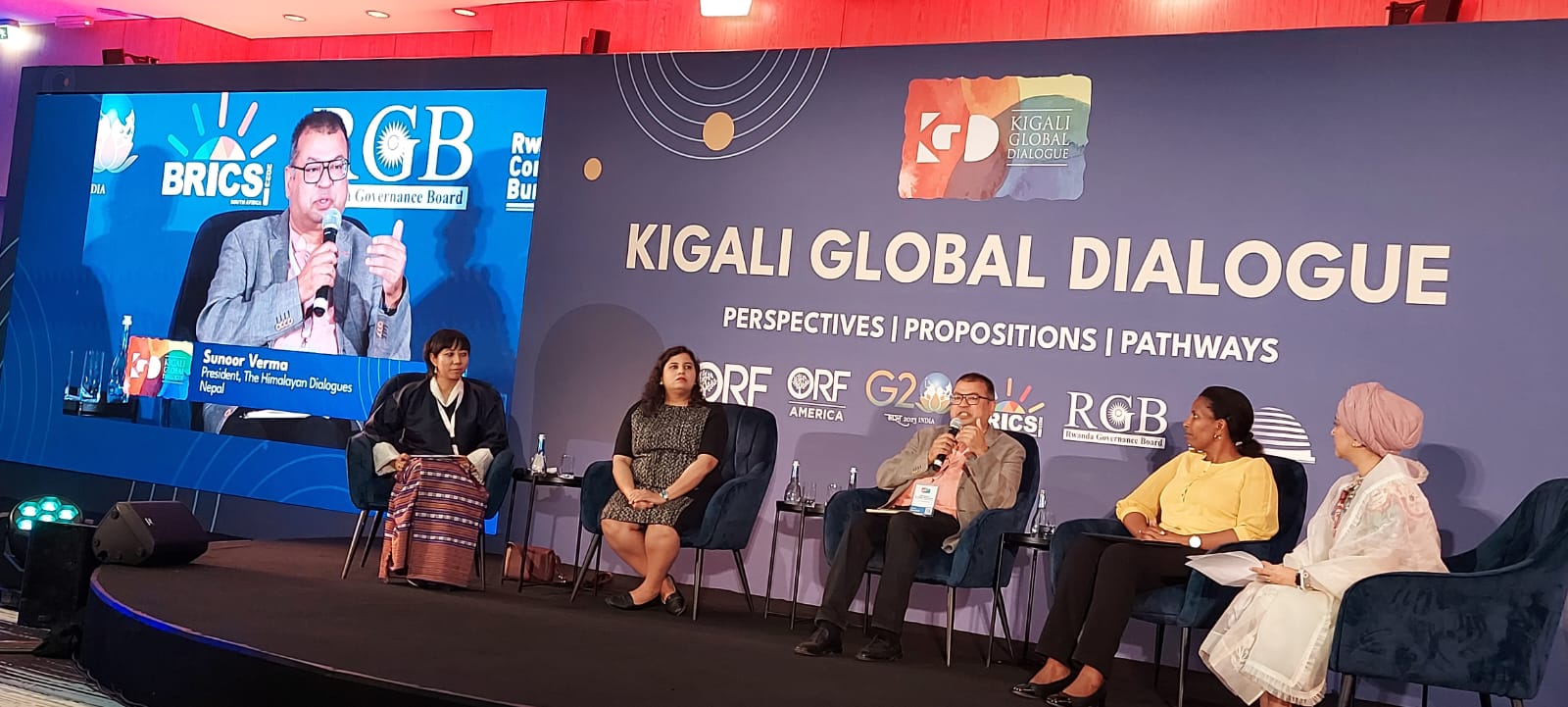
Rwanda has made some significant improvement in development despite the genocide that occurred not long ago, so what are the factors or strategies that do you believe contributed to Rwanda’s transformation into current Africa’s fastest developing nation?
Rwanda’s transformation always inspires me; it is a remarkable story of how a country can overcome a horrific past and build a brighter future. Many factors have contributed to Rwanda’s success, but I believe the most important ones are visionary leadership, good governance, and investment in human capital.
President Paul Kagame has been a visionary leader for Rwanda. He has articulated a clear vision for the country’s future and has been committed to implementing it. He has also created a robust, stable government focused on good governance and transparency. This has created an environment where businesses can thrive, and people can live in peace and security.
Rwanda has also invested heavily in education and healthcare. This has led to a significant improvement in the quality of life for its citizens. The country now has one of the highest literacy rates in Africa and is also making progress in reducing poverty and malnutrition. Rwanda is also a leader in gender equality, with women making up more than half of the parliament. I am confident that Rwanda will continue to thrive in the future.
I speak passionately about Rwanda’s transformation because it is a model for other developing countries. The principles of visionary leadership, good governance, gender equity and investment in human capital are the same principles that I believe can be applied to other developing countries.
As you said, the society was torn from violence and ethnicity, and now it is embracing its unity; that transition is indeed remarkable for a landlocked country or small country like Rwanda, so what do you believe are the key factors that enable this transition and how can other countries with a similar situation, similar socio-economic problems can learn from Rwanda’s experience.
Rwanda’s transition from a country torn by violence and ethnicity to embracing unity is remarkable. It is a story of how a country can overcome a complicated past and build a brighter future. Many factors have contributed to Rwanda’s success, but the most important ones are leadership, Reconciliation and gender equality.
Leadership is essential for any country that wants to achieve its goals. President Paul Kagame has understood the importance of Reconciliation in Rwanda and has taken steps to promote it. He has also committed to gender equality, and women now play a leading role in all aspects of Rwandan society.
Reconciliation is another essential ingredient for peace and unity. Rwanda has taken several steps to promote Reconciliation, including creating a system of local courts and local bodies to help people reconcile with each other. The country has also integrated the issue of Reconciliation into its school curriculums.
Gender equality is also essential for peace and unity. When women are empowered, they are more likely to be involved in decision-making and promote peace. Rwanda has made significant progress in gender equality; women now comprise more than half of the parliament.
Reconciliation is a difficult process, but it is critical in countries that have suffered genocide or other mass tragedies. It is the only way to fully move past the past and create a better future for everyone. Reconciliation does not imply ignoring the past. It is about remembering the past in order to create a better future. It is about acknowledging the grief and suffering inflicted and working together to find a way forward. It is a matter of forgiveness, not forgetting. It is about justice, but not about vengeance. It is a process of healing, not forgetting.
Rwanda has focused a lot on agricultural development to progress since the genocide. Nepal is also an agro-based country, so what methods used by the people of Rwanda can be applicable for Nepal to develop agriculturally?
Rwanda is a remarkable example of a country that has transformed itself from a low-income, post-conflict country to a high-performing economy in just two decades. One of the key drivers of this transformation has been Rwanda’s focus on agricultural development.
Rwanda has invested heavily in agriculture, both in terms of infrastructure and technology. The country has built a network of irrigation canals and dams and introduced new technologies such as drip irrigation and solar-powered pumps. This has helped to increase agricultural productivity and reduce vulnerability to drought. Rwanda has also invested in agricultural research and development. The country has established several agricultural research centres and partnered with international organisations such as the International Maize and Wheat Improvement Center (CIMMYT) to develop new varieties of crops resistant to pests and diseases.
In addition to infrastructure and technology, Rwanda has also focused on good governance and gender equity in agriculture. The government has put in place many policies to promote women’s participation in agriculture and has also made efforts to reduce corruption in the agricultural sector.
As a result of these investments, Rwanda has achieved significant progress in agricultural development. The country’s agricultural output has doubled in the past two decades, and poverty has been reduced by half.
Nepal can learn a great deal from Rwanda’s experience in agricultural development. Nepal is also agro-based, facing many of the same challenges as Rwanda. However, Nepal has the potential to achieve similar results if it invests in infrastructure, technology, good governance, and gender equity in agriculture. I am confident that Nepal can follow in Rwanda’s footsteps and transform into a high-performing economy. It is only a matter of commitment and determination.
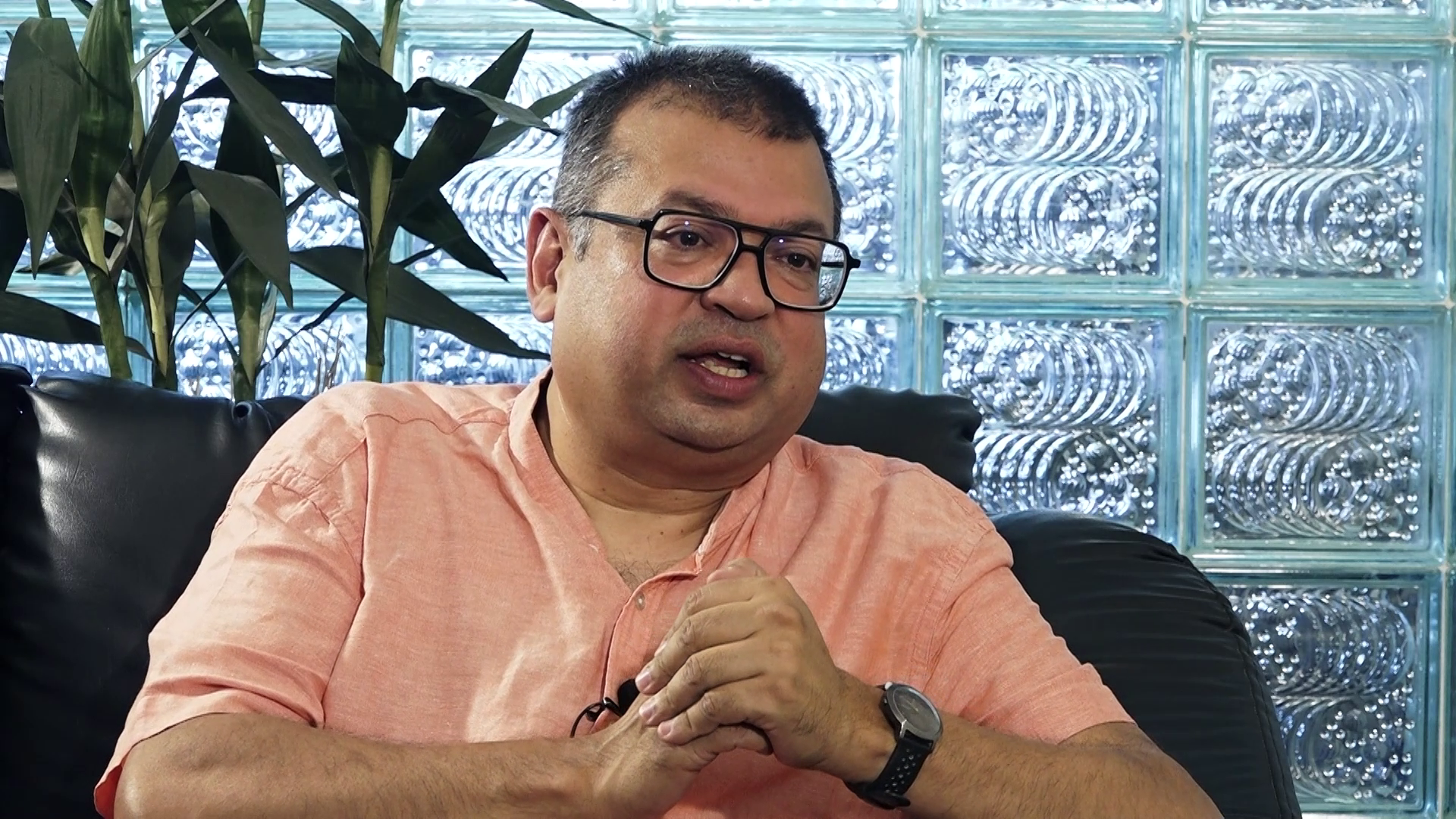
For a country like Nepal which is quite similar to Rwanda as it has faced many transitions in the political system, it is now a democratic country experiencing several changes in the political system. So in your view, what aspects of Rwanda’s governance leadership and policies can benefit countries like Nepal ?
I have been impressed by Rwanda’s progress in recent years, and I believe that the country has much to offer other developing countries facing similar political changes.
One of the most striking things about Rwanda is its political vision. The government has a clear and long-term plan for the country and has been able to implement this plan effectively. This is in contrast to many other developing countries, which often have frequent changes of government and lack a clear vision for the future.
Another critical aspect of Rwanda’s governance is its political stewardship. The government has channelled international support and technical assistance in a way that has benefited the country as a whole. This contrasts with many other developing countries, where international aid is often fragmented and does not reach the people who need it most.
Finally, Rwanda has made significant progress in gender equality. This contrasts with many other developing countries, where women, including Nepal, are still underrepresented in decision-making roles.
I believe these three aspects of Rwanda’s governance can benefit other developing countries facing similar political changes. If these countries can create a clear vision for the future, channel international support effectively, and promote gender equality, they can achieve significant progress in their development.
I am particularly passionate about the issue of gender equality. I believe that when women are empowered, they can make a real difference in the development of their countries. Rwanda is an excellent example of a country that has benefited from gender equality. I hope other developing countries will follow Rwanda’s example and allow women to lead their societies.
As you said before, Rwanda has garnered a lot of tourist attention. Nepal is also a little bit inclined towards tourism development. It is trying to develop more tourism in the country. It has more tourist attractions than Rwanda, but still, it is not as successful as Rwanda. So what could be the cause behind it and what steps can Rwanda take, and what methods that Rwanda has applied can be applicable in Nepal in developing the tourism sector?
Nepal is a beautiful country with a lot to offer tourists, but it has not been as successful as Rwanda in attracting tourists. If we analyse how Rwanda has achieved this feat of attracting high-value, high, spending tourists, we will find that the answers lie in good governance, branding, and infrastructure.
Good governance: Rwanda has a reputation for being a well-governed country with low levels of corruption. This is important for tourism, as tourists want to feel safe and secure when they travel. Lesson number one- Corruption deters high-spending tourists from visiting a country.
Branding: Rwanda has done an outstanding job branding itself as a tourist destination. The country is known for its gorillas, beautiful scenery, and friendly people. The lesson, Two: Political and economic instability is not conducive to solid branding.
Infrastructure: Rwanda has invested heavily in infrastructure, such as roads, airports, and hotels. This makes it easy for tourists to get around the country and enjoy their visit. Lesson, Three: infrastructure for safe connectivity and secure accommodation is critical.
In addition to these three areas, Nepal can also improve its tourism sector by addressing the following issues:
Gender equality: Nepal has a long history of gender inequality. This can deter female tourists from visiting the country. Nepal needs to do more to promote gender equality and to create a more welcoming environment for female tourists.
Tourism education: Nepal needs to invest in tourism education. This will help to create a more skilled workforce in the tourism sector and will also help to raise awareness of the importance of tourism.
Sustainable tourism: Nepal needs to develop sustainable tourism practices. This will help to protect the environment and to ensure that tourism benefits the local community.
I believe that Nepal has the potential to become a significant tourist destination. However, it needs to address its challenges to realise its full potential.
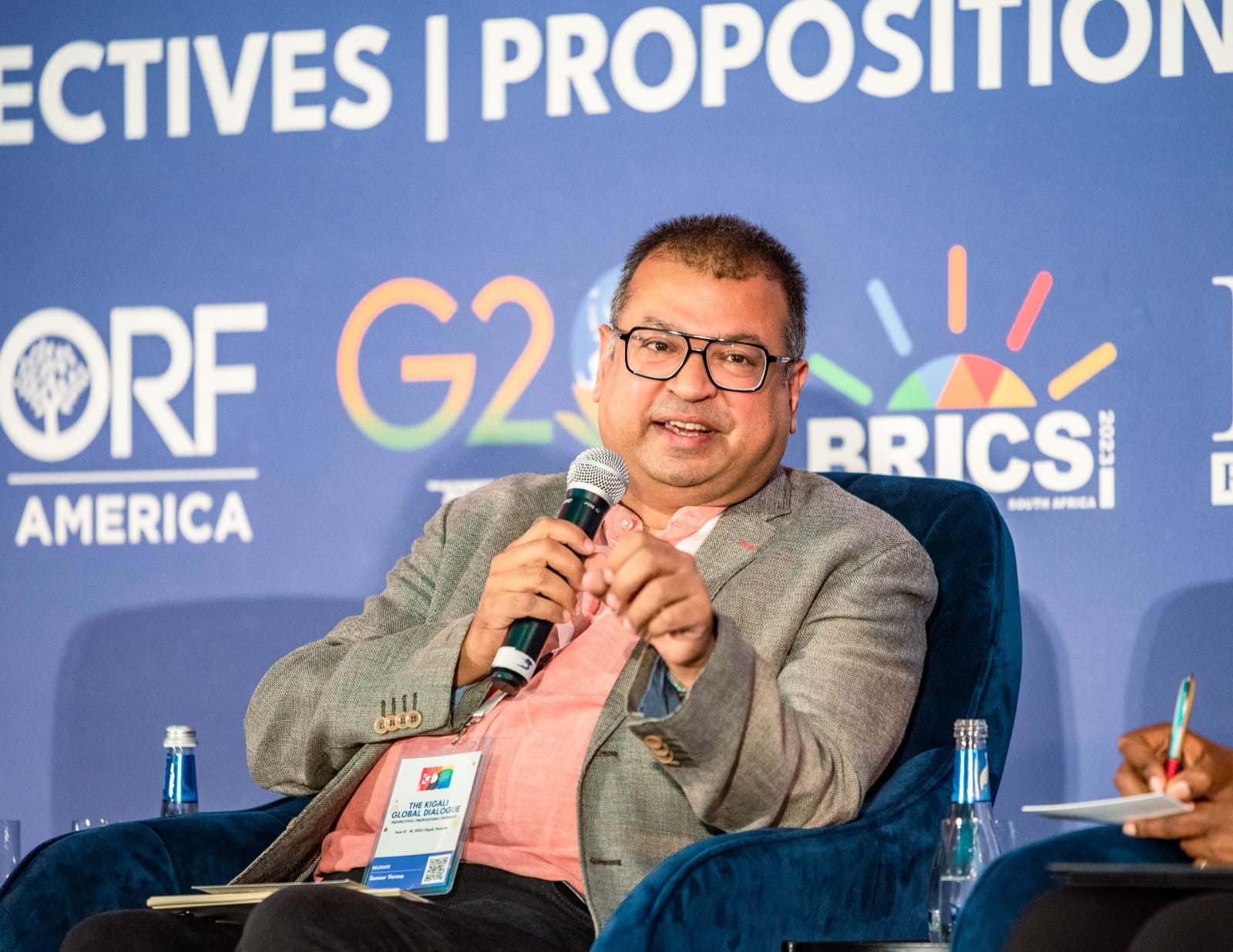
Lastly, what do you think, methods or formulas Rwanda used to be this successful within two decades? And how would you compare their political system and their development with Nepal’s development?
I have been working in international development for over 20 years and have seen many countries progress, but Rwanda is one of the most impressive success stories. In just two decades, Rwanda has transformed from a country ravaged by genocide to a thriving and prosperous nation.
Many factors have contributed to Rwanda’s success, but I believe that the following are the most important:
Evidence-based decision-making: Rwandan leaders have committed to using evidence to guide their decisions. This means that they have invested in research and analysis and are willing to change course if the evidence shows that they are on the wrong track.
Political will: Rwandan leaders have shown a strong commitment to development. They have made it a priority to improve the lives of their citizens, and they have been willing to make difficult decisions to achieve their goals. There appears to be an agreement among the politicians of Rwanda on a common minimum national interest agenda.
Gender equality: Rwanda has made significant progress in gender equality. Women comprise more than half of the parliament, leading in all aspects of society. This has helped to create a more just and equitable society, and it has also contributed to economic growth.
Public participation: Rwandan leaders have committed to public involvement. They consult with citizens regularly, and they are responsive to their feedback. This has helped build trust between the government and the people, making it easier to implement reforms.
Finally, the Rwandan leadership has maintained stewardship of its National Development agenda and has not allowed foreign interference while being open to considering global best practices.






